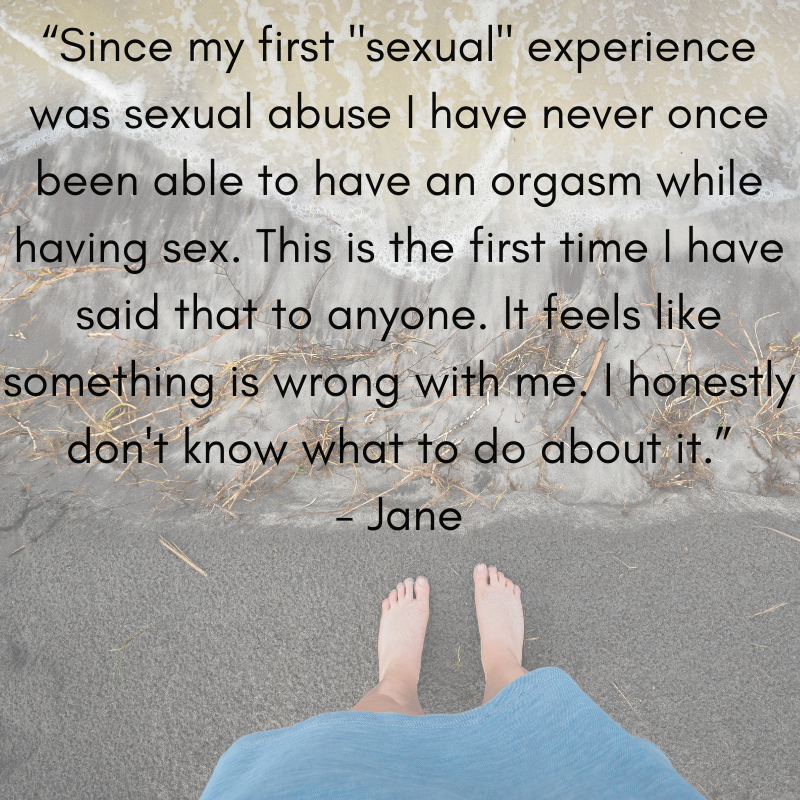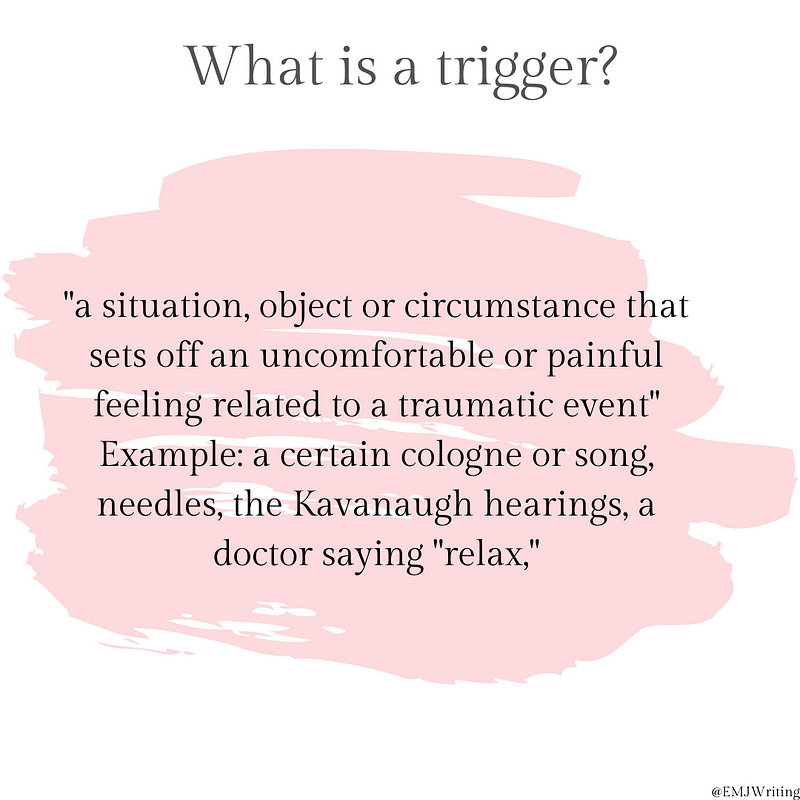The One Big Little Thing Survivors Need To Know About Sex
“Since my first ‘sexual’ experience was sexual abuse, I have never once been able to have an orgasm while having sex.”
“Since my first ‘sexual’ experience was sexual abuse, I have never once been able to have an orgasm while having sex.”
Sexual abuse can have long term effects on physical health and emotional wellness.
The more early childhood trauma you were exposed to, the higher your risk for health and wellness challenges later on. But less well known is how past sexual abuse affects intimacy. I have been working with survivors for almost fifteen years and have heard anecdotally about survivor intimacy issues for just as long. This is an area where there is little hard data, however. So I conducted some research that looked at exactly this issue.
One of the first people to share some of their story with me was “Jane”. Like so many abuse survivors, Jane is alone with her pain. But here’s the one big little thing Jane needs to know now: there’s nothing wrong with her.
Her inability to orgasm during sex is common. (Also common are flashbacks, pain during sex, lack of desire and an inability to get aroused.) So what’s going on? There are many possible reasons for a lack of orgasm. Let’s look at four biggies:
Vulnerability: Brene Brown says, “Of all the things that trauma takes away from us, the worst is our willingness…to be vulnerable.” But vulnerability is a way that we build and deepen connection with others. If we aren’t being vulnerable with trusted people, we may feel alone and frustrated. “What’s wrong with me?” is a natural thought. When we can’t be vulnerable during intimacy, the result can be even greater disappointment. We feel misunderstood by our chosen partner and our satisfaction with sex can be compromised, sometimes in the form of a missing orgasm.
Control: An orgasm is a surrender to sexual excitement. Inherent in orgasm is a relinquishing of control. But holding tight to control is common for many abuse survivors. Abuse survivors were hurt by someone who wielded power and control over them. Yielding control to someone else, even if a chosen partner and even with small, non-sexual things, can be very scary. Sex complicates the issue of control for many of us, but even more so for abuse survivors.
Unpredictability of our body: Some survivors experience a betrayal of their body for the first time during abuse. For example, some survivors bodies may have responded in a sexual way to their abuse, despite not wanting to be hurt. Although this is heartbreaking and can be confusing, it is normal. Years later, we may be excited by our chosen partner but our body may still betray us. This can show up in many ways including an inability to orgasm.
4. Triggers: While triggers are unpredictable, they are more likely to surface during vulnerable times like intimacy. Triggers can happen years after abuse has ended and even if the survivor is in a loving relationship. Being touched in a specific place or hearing a certain word (“relax,”) could be a trigger that inhibits orgasm.
These are a few of the reasons survivors like Jane might not orgasm during sex. While an understanding of how past abuse can impact the present is important, so is a sense of agency about abuse. So what can Jane do?
One thing Jane can do is talk about the abuse. Jane has told partners that she is a sexual abuse survivor. But, sexual abuse is not a “one and done” topic. Remember, triggers can show up at any time, even in a loving relationship! Continued conversations about abuse and how it’s showing up in our lives is an essential practice. These conversations must happen with trusted friends, partner(s), family and in peer support groups. Too often survivors talk about abuse only with their therapist. Talking about abuse outside a professional’s office, however, strengthens trusted relationships and keeps a focus on the practical and the present.
If pain exists only in our mind, we can fool ourselves into thinking we are wrong or defective. But when we speak pain out loud, we own it, instead of it owning us.
Secondly, Jane needs to find trusted people in her life, aside from a partner, that she can talk to about intimacy issues. If this is a challenge, Jane can work on this in a peer support group or with vulnerability statements. Being sexual with someone is a high risk place for many of us. Starting low risk is a way to practice being vulnerable and find, safe, trusted people. Examples of low risk vulnerability exchanges would be turning down a request or sharing a personal story with someone new.
Finally, it’s imperative that Jane’s sexual partner is a chosen, desired partner. That’s the one that causes the good kind of butterflies! Feeling indifferent to a partner or going through the motions is a recipe for disaster. No sizzle=all fizzle. In honor of DVAM, it feels important to mention that it’s also a bad sign to feel anxious, scared or sexually pressured by a partner. We’re more likely to orgasm when we are with a chosen partner, can relax and enjoy that person.
And we want and need that. Orgasms not only feel good but are good for us! They are especially healthy tools for survivors. A few areas of the brain that impact behaviors and thoughts such as fear, self-evaluation, fight/flight/freeze actually shut down during orgasm. These can be real challenges for abuse survivors so being able to effectively turn them off during orgasm is a welcome break.
It can be embarrassing and lonely to be unable to orgasm with a chosen partner. But for Jane and all those like her: there’s nothing wrong with you. And there are real steps that Jane and others survivors can take to feel sexual in the way they want.
Note: An earlier version of this article was originally published in 2017 on LinkedIn.
Elizabeth M. Johnson MA is a writer and podcaster based in Durham, North Carolina. She writes about trauma, relationships and how we make decisions. Sign up for her Substack here or be social @EMJWriting.





